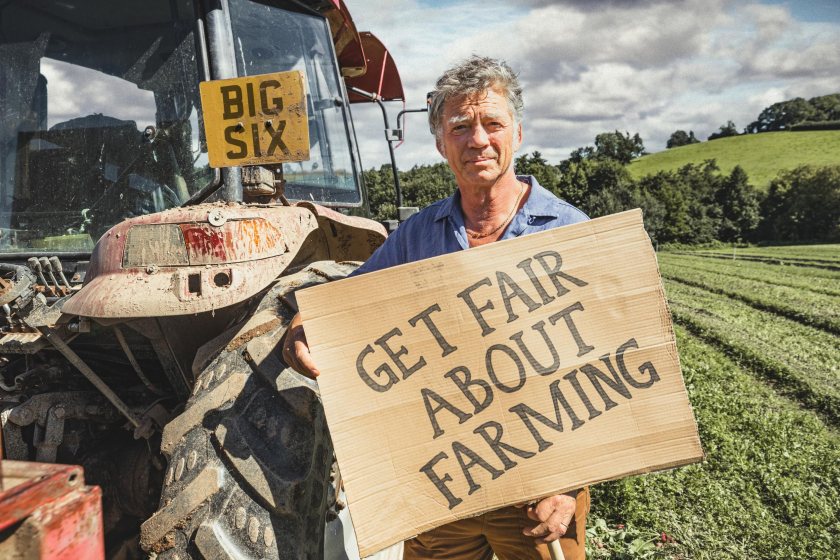
Farmers say the current supermarket supply chain rules are “unfit for purpose”, warning that making a living from agriculture “has never been harder” as new research reveals a sharp deterioration in relations between growers and retailers.
Farmers and MPs are urging government to overhaul the system by creating a single food supply chain regulator with the power to hold supermarkets to account, amid frustration that the existing Groceries Code Adjudicator lacks the scope and resources to protect producers.
The call is being driven by organic veg box company Riverford as part of its #GetFairAboutFarming campaign, which has already prompted more than 3,000 people to contact their MPs.
According to independent research commissioned by Riverford, seven in ten farmers (69%) say buying relationships with retailers have worsened over the past two years, while 68% report that earning a living from farming “has never been harder”.
Three quarters of respondents believe the current regulatory system fails to prevent unfair practices, and the same proportion support the creation of a single regulator covering the entire supply chain.
Growers describe feeling increasingly vulnerable in negotiations, with supermarkets accused of using their market power to impose terms that farmers say they cannot challenge without risking delisting. One producer said the current system leaves farmers “negotiating with two hands tied behind [their] back”.
Eighty-six MPs have now signed an Early Day Motion calling for the merger of supply chain watchdogs currently split across two government departments. Farmers from across the country have echoed the call, with many backing Riverford’s push for a stronger, more unified regulator.
Sussex apple grower Richard Stogdon said relations with supermarkets had “substantively deteriorated”. Carmarthenshire dairy farmer Haydn Evans described securing a 1p per litre rise from supermarkets via his buyer, only for that buyer to be delisted three months later. He said supermarkets “know how much they’re taking and how vulnerable farmers are” and “exploit the power imbalance”.
Third-generation fruit grower Jonathan Hoskyns said he had stopped supplying supermarkets altogether, adding: “I don't miss the stress and I don't miss the worry of not knowing what our fruit is worth until it has all been sold.”
Riverford’s research found that 65% of farmers feel they must accept supermarket terms for fear of losing contracts, while 76% say retailer behaviour puts them under serious financial pressure.
Six in ten farmers consider their business at financial risk, and nearly all respondents (99%) reported experiencing at least one unfair practice, including late payments, cancelled orders, unreasonable cosmetic requirements and last-minute changes to agreed terms.
The impact is taking a toll on wellbeing as well as balance sheets, with 82% of farmers reporting that unfair supermarket practices are contributing to stress and poor mental health.
Riverford’s founder, Guy Singh Watson, said: “For three years our #GetFairAboutFarming campaign has been calling for a regulator with real teeth, one that can stand up to supermarkets and help address the huge imbalance of power in our supply chains.”
He warned that while official surveys suggest improvements, these findings “show the opposite is true for the small and medium-sized family farms that produce most of our food”. He added: “Farming shouldn’t feel like survival.”
The campaign is backed by a wide range of public figures including Ray Mears, Rick Stein, Deborah Meaden and Jimmy Doherty, as well as organisations such as Sustain and the Soil Association.
Georgina Edwards, sustainable farming campaign officer at Sustain, said Riverford’s findings show farmers are still being hit by unfair practices such as cancelled orders and delayed payments.
She said three quarters of farmers believe retailer behaviour pushes them towards more intensive, less environmentally friendly systems, warning that without stronger regulation “the government will fail to address the issue of farm profitability”.
She added that the ongoing review of the Groceries Code Adjudicator offers “a prime opportunity to make fairer supply chains a reality” and urged ministers to join up existing regulation and ensure watchdogs are properly resourced.
